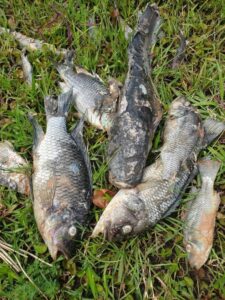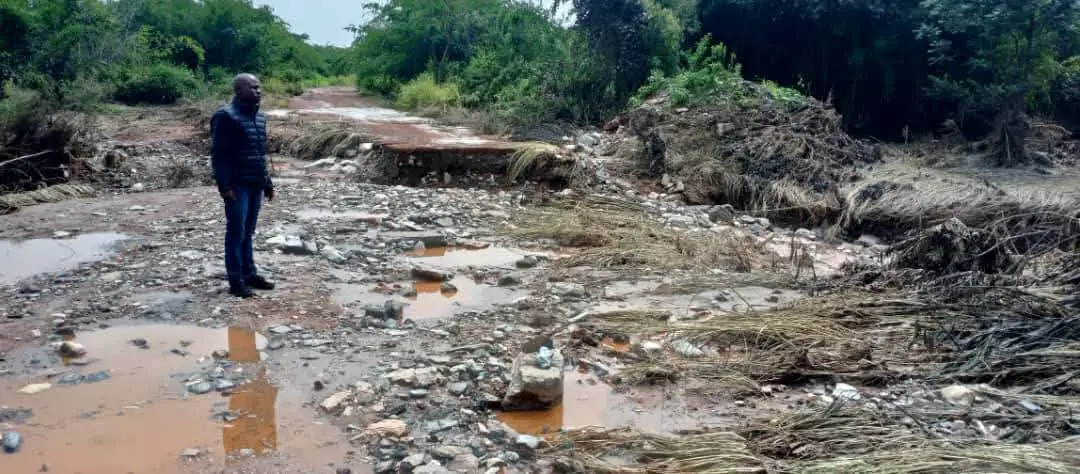The Zambian government is currently conducting an in-depth assessment of farms situated along the contaminated Mwambashi Stream and Kafue River on the Copperbelt to determine the extent of the pollution’s impact on fish and livestock. This follows alarming reports of water contamination that has already led to mass fish deaths and raised serious health concerns for both animals and humans.
Government Response and Investigations
The Ministry of Fisheries and Livestock has dispatched a specialized team from the National Aquaculture Research and Development Centre to carry out further scientific assessments along these critical water bodies. The aim is to establish the full scope of the pollution and its potential consequences on the aquatic ecosystem and surrounding communities that rely on these rivers for fishing and livestock rearing.
According to Benny Munyama, the Ministry’s Principal Public Relations Officer, preliminary findings have confirmed that the affected water bodies are dangerously acidic. Water samples taken from Kafue Bridge in Kitwe revealed a pH level of just three (3)—a stark indicator of high acidity. The normal pH range for healthy freshwater ecosystems typically falls between 6.5 and 8.5, meaning that the current levels pose a severe threat to aquatic life and human health.

Potential Causes of Contamination
While official reports have not yet specified the exact sources of the acidic effluents, it is widely suspected that industrial discharge from mining operations in the Copperbelt Province may be a significant contributing factor. The mining sector, which plays a dominant role in the province’s economy, is known to produce sulfuric acid, heavy metals, and other toxic waste materials that can contaminate water sources if not properly managed.
Additionally, agricultural runoff from nearby farms, containing pesticides and chemical fertilizers, could also be worsening the situation. This combination of industrial and agricultural pollutants may be responsible for the drastic pH decline in the river.

Health and Environmental Risks
The Ministry has issued a strong warning to residents living near these contaminated water sources, urging them to avoid consuming fish from the Kafue River and affected streams. Munyama emphasized that the pollution contains acidic effluents mixed with heavy metals, making the fish unsafe for human consumption. Exposure to such contaminated fish or water can lead to serious health issues, including:
Heavy metal poisoning – Long-term exposure to metals like lead, arsenic, and mercury can cause neurological damage, kidney failure, and other chronic diseases.
Skin and eye irritation – Direct contact with highly acidic water can result in burns, rashes, and eye infections.
Gastrointestinal complications – Ingesting contaminated water or fish could lead to stomach pain, nausea, vomiting, and diarrhea.
Aquatic ecosystem collapse – Extreme acidity can kill fish populations, destroy breeding grounds, and disrupt the entire aquatic food chain.
Government Measures and Next Steps
To prevent further damage, authorities are working closely with environmental and health experts to contain the pollution and identify long-term solutions. Measures being considered include:
1. Increased water monitoring – Regular testing of pH levels and pollutant concentrations to track changes over time.
2. Industrial regulation enforcement – Stricter control over waste disposal practices by mining and manufacturing companies.
3. Public awareness campaigns – Educating local communities about the dangers of consuming contaminated fish and using polluted water.
4. Livelihood support for affected fishermen – Exploring alternative sources of income for fishermen whose businesses are affected by the fish die-off.
The government is expected to release a comprehensive report once the full assessment is complete, detailing the severity of the contamination and the necessary steps to restore the safety of the Kafue River and Mwambashi.

